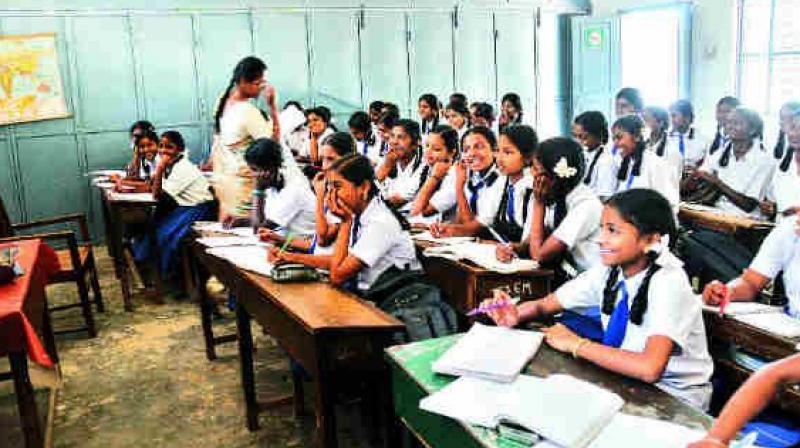Telangana: Teachers can retire later'

Hyderabad: The Supreme Court, in an interim direction, has ordered that superannuation of employees and teachers working in institutions promoted by the AP state government be deferred, but not beyond 60 years.
A two-member bench, comprising Justice Kurian Joseph and Justice R. Banumathi, was dealing with a batch of special leave petitions by teachers working in the AP Tribal Welfare Residential Educational Institutions Society (Gurukulam), challenging Hyderabad High Court disposing of their petitions without any direction to the state government to extend the benefit of enhancing the retirement age from 58 to 60 years to them on par with government teachers and employees.
A division bench of the High Court had on March 7, 2017 disposed of the batch of petitions moved by employees working in the state-owned corporations in AP, seeking extension of the benefit of retirement age to them by directing the state government to take a decision in four months.
The bench observed that it was for the state government to take a decision with regard to the plea of enhancing the retirement age of employees working in various state-owned corporations and institutions.
Counsel for the petitioners told the Supreme Court that age of retirement is 60 years in government and government-aided private institutions and the Gurukulam is a wholly government-owned society.
Therefore, the teachers in the society (Gurukulam) cannot be discriminated against.
He submitted that in the case of Gurukulam, a decision has already been taken and what was required is only the formal expression of the decision in the form of an appropriate legislation.
While issuing notices only to contesting respondents, the apex court ordered that in case any employee has retired only on the ground of attaining the age of 58 years, such employees shall be reinstated and continued in service until further orders, but in no case, beyond 60 years.
The bench made it clear that the order will apply to all similarly situated employees under the respondent-institutions whether they were petitioners before this court or not.

